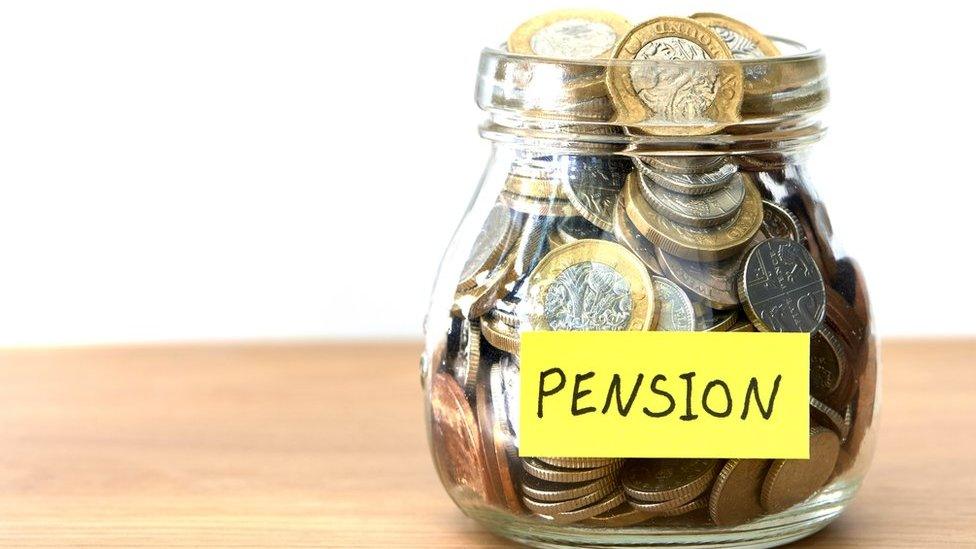State pension predicted to rise by 8%
- Published
- comments

Retired people could see a bumper rise in the state pension next year, according to official forecasters.
Predictions suggest that the link with earnings growth could mean an 8% rise in the amount paid from April 2022.
That would cost the government £3bn more than previously expected, according to the Office for Budget Responsibility (OBR).
But UK state pensions remain less generous than much of Europe, and are vital for millions of people.
At present:
The new flat-rate state pension (for those who reached state pension age after April 2016) is £179.60 a week
The old basic state pension (for those who reached state pension age before April 2016) is £137.60 a week
The rise in pensions each year is one of the most hotly-debated policy decisions for the government and the Treasury.
It is governed by what is known as the triple lock - a Conservative manifesto promise until at least 2024.
This means the state pension increases in line with the rising cost of living seen in the Consumer Prices Index (CPI) measure of inflation, increasing average wages, or 2.5%, whichever of those three is highest.
Extra £3bn cost
Near the end of each year, the government sets the level of state pension to be paid from the following April. It makes the judgement based on data from the Office for National Statistics.
The most relevant for the next rise in state pension will be the highest of the three elements of the triple lock, which is likely to be the increasing level of average wages.
The OBR is the government's official, but independent, forecaster. Late last year, and early this year, it predicted wages would rise by 4.6%.
Now, it is expecting the increase to be higher. The Bank of England has suggested it could be an 8% rise.
"If earnings growth… were 8%, that would add around £3bn a year to spending [on the state pension] relative to our forecast," the OBR said in its Fiscal Risks Report, external.
So the cost to the taxpayer would be £3bn more than what was already predicted to be a significant rise. The effect continues into subsequent years.

However, that does not mean all pensioners are going to be laughing all the way to the bank.
The UK state pension is one of the less generous in Europe.
Former pensions minister Sir Steve Webb said it was still "far from a King's ransom".
In addition, lots of low-paid workers have lost their jobs during the pandemic, the OBR points out. The effect of that trend is that it skews the comparison of wages, meaning that average wages are driven by higher paid workers and rising faster.
That means the people who are losing their jobs now, are the very same people who are more likely to rely on the state pension in the future. They will not have built up additional private or workplace pensions.
'Security' for pensioners
When asked in October whether the triple lock was safe, Chancellor Rishi Sunak said: "Yes, our manifesto commitments are there and that is very much the legislative position.
"We care very much about pensioners and making sure they have security and that's indeed our policy."
The government does have an option in law to decide how the calculations are made. If the rise in average wages is considered to be an anomaly, then it could decide to break the link and give a smaller rise to pensioners.
The age at which people receive the state pension has been increasing as people live longer. It is currently 66 for men and women, and the government has plans for the increase to 68 to be brought forward.
- Published6 July 2021

- Published6 October 2020
